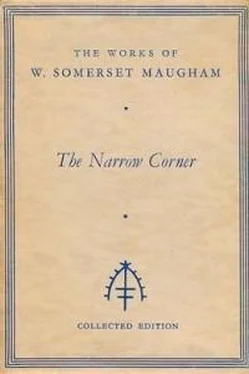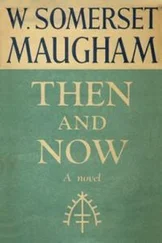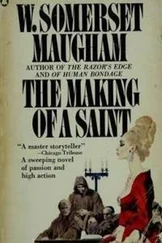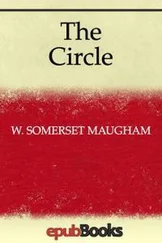“Half a minute,” said the doctor. “You said you suddenly felt a revolver in your hand. I don’t quite understand.”
“Florrie put it there.”
“How did she get it?”
“How should I know? She took it out of Pat’s pocket when he was on the top of me or else she had it there. I only fired in self–defence.”
“Go on.”
“Suddenly mother said, ‘What’s the matter, Fred?’ It came so unexpectedly and her voice was so—gentle, it just broke me. I tried to control myself; I couldn’t, I just burst out crying. ‘Hullo, what’s this?’ said father. Mother put her arms round me and rocked me as if I was a baby. She kept on asking me what was the matter, and at first I wouldn’t say. At last I had to. I pulled myself together. I made a clean breast of the whole thing. Mother was frightfully upset, and started weeping, but father shut her up. She began reproaching me, but he wouldn’t let her do that either. ‘All that doesn’t matter now,’ he said. His face was like thunder. If the earth could have opened and swallowed me on a word of his, he’d have said the word. I told them everything. Father had always said the only chance a criminal has is to be absolutely frank with his lawyer, and that a lawyer couldn’t do a thing unless he knew every single fact.
“I finished. Mother and I looked at father. He’d stared at me all the time I was speaking, but now he looked down. You could see he was thinking like hell. You know, in some ways father’s an extraordinary man. He’s always been very keen on culture. He’s one of the trustees of the Art Gallery and he’s on the committee that gets up the symphony concerts and all that. He’s gentlemanly and rather quiet. Mother used to say he looked very distinguished. He was always very mild and amiable and polite. You’d have thought he wouldn’t hurt a fly. He was everything he seemed, but there was a lot more in him than that. After all, he’d got the biggest lawyer’s business in Sydney, and there was nothing he didn’t know about people. Of course he was highly respected, but everyone knew it wasn’t much good trying on any hanky–panky with him. And it was the same in politics. He ran the party and old Darnes never did a thing without consulting him. He could have been premier himself if he’d wanted to, but he didn’t, he was quite satisfied just to be in the government and manage the whole shooting match behind the scenes.
“‘You mustn’t blame the boy too much, Jim,’ mother said.
“He made a sort of impatient movement with his hand. I almost thought he wasn’t thinking about me at all. It sent a chill down my spine. He spoke at last.
“‘It looks very much like a put–up job between those two,’ he said. ‘Hudson has been rather difficult lately. I shouldn’t be surprised if there was blackmail behind it. And she double–crossed him.’
“‘What’s Fred to do?’ said mother.
“Father looked at me. You know, he looked just as mild as always and his voice had the same rather pleasant note in it. ‘If he’s caught, he’ll hang,’ he said. Mother gave a shriek and father frowned a little. ‘Oh, I’m not going to let him hang,’ he said. ‘Don’t be afraid. He can escape that by going out now and shooting himself.’ ‘Jim, d’you want to kill me?’ said mother. ‘Unfortunately that wouldn’t help us much,’ he said. ‘What?’ I asked. ‘Your shooting yourself,’ he said. ‘The thing’s got to be hushed up. We can’t afford a scandal. We’re going to have a stiff fight at the election, and with me out of it and all this we shouldn’t have much chance.’ ‘Father, I’m so awfully sorry,’ I said. ‘I don’t doubt that,’ he said. ‘Fools and blackguards generally are when they have to take the consequences of their actions.’
“We were all silent for a bit and then I said, ‘I’m not sure if it wouldn’t be the best thing if I went and shot myself.’ ‘Don’t be so stupid,’ he said; ‘that would only make things worse. D’you think the newspapers are such fools that they wouldn’t put two and two together? Don’t talk. Let me think.’ We sat like mutes. Mother was holding my hand. ‘There’s the woman to deal with, too,’ he said at last. ‘We’re in her clutches all right. Nice to have her as a daughter–in–law.’ Mother didn’t dare say a word. Father leaned back in his chair and crossed his legs. A little smile came into his eyes. ‘Fortunately we live in the most democratic country in the world,’ he said. ‘Nobody is above corruption.’ He liked saying that. He looked at us for a minute or two. He had a way of thrusting out his jaw when he’d made up his mind to do something and meant to put it through that I knew as well as mother did. ‘I suppose it’ll be in the paper to–morrow,’ he said. ‘I’ll go and see Mrs. Hudson. I think I know what she’s going to say. If she sticks to her story, barring accidents I don’t think anyone can prove anything. It looks to me as if she’d worked it all out pretty thoroughly. The police will question her, but I’ll see they don’t interview her without my being present.’ ‘And what about Fred?’ said mother. Father smiled again. You’d have sworn butter couldn’t melt in his mouth. ‘Fred’ll go to bed and stay there,’ he said. ‘By a merciful interposition of providence there’s a lot of scarlet fever about, an epidemic practically; to–morrow or the next day we’ll rush him off to the fever hospital.’ ‘But why?’ asked mother. ‘What’s the use of that?’ ‘My dear,’ said father, ‘it’s the best way I know of keeping someone out of the way for a few weeks with perfect security.’ ‘But supposing he catches it?’ said mother. ‘He’d be acting natural,’ he said.
“In the morning father rung up my boss and said I’d got a temperature and he didn’t half like the look of it. He was keeping me in bed and had sent for the doctor. The doctor came all right. He was my uncle, mother’s brother, and he’d attended me since I was born. He said he couldn’t say for certain, it looked like scarlet fever, but he wouldn’t send me to the hospital till the symptoms declared themselves. Mother told the cook and the maid that they weren’t to come near me, and she’d look after me herself.
“The evening paper was full of the murder. Mrs. Hudson had gone to the pictures by herself, and when she came home and went into the sitting–room she had found the body of her husband. They didn’t keep a servant. You don’t know Sydney, but the house was a sort of little villa in a quarter they’d been developing; it stood in its own ground, and the next house was twenty or thirty yards away. Florrie didn’t know the people who lived in it, but she ran there and battered on the door till they opened it. They were in bed and asleep. She told them her husband had been murdered and asked them to come quickly; they ran along, and there he was lying all heaped up on the floor. The man from the other house remembered after a while that he’d better call up the police. Mrs. Hudson was hysterical. She threw herself on her husband, screaming and crying, and they had to drag her away.
“Then there were all the details that the reporters had managed to pick up. The police doctor thought the man had been dead two or three hours. Strangely enough, he’d been shot with his own revolver, but the possibility of suicide was dismissed at once. When Mrs. Hudson had collected herself a bit she told the police that she’d spent the evening at a picture palace. She had part of the ticket still in her bag, and she’d spoken while there to two people she knew. She explained that she’d decided to go to the pictures that evening because her husband had arranged to go to Newcastle. He’d come home shortly before six and told her he wasn’t going. She said she’d stay at home with him and get him his supper, but he told her to go as she’d intended. Someone was coming to see him on important business, and he wanted to be alone. She went out and that was the last she saw of him alive. There were signs of a terrific struggle in the room. Hudson had evidently fought desperately for his life. Nothing had been stolen from the house, and the police and the reporters at once jumped to the conclusion that the crime had a political motive. Passions run pretty high politically in Sydney, and Pat Hudson was known to be mixed up with some very rough characters. He had a lot of enemies. The police were prosecuting their enquiries, and the public were asked to inform them if they had seen a suspicious–looking person, possibly an Italian, in the neighbourhood or in a tram coming away from there who bore signs of having been engaged in a fight. A couple of nights later an ambulance came to our house and I was taken to the hospital. They kept me there for three or four days, and then I was slipped out and brought to the place where the Fenton was waiting for me.”
Читать дальше
Конец ознакомительного отрывка
Купить книгу










